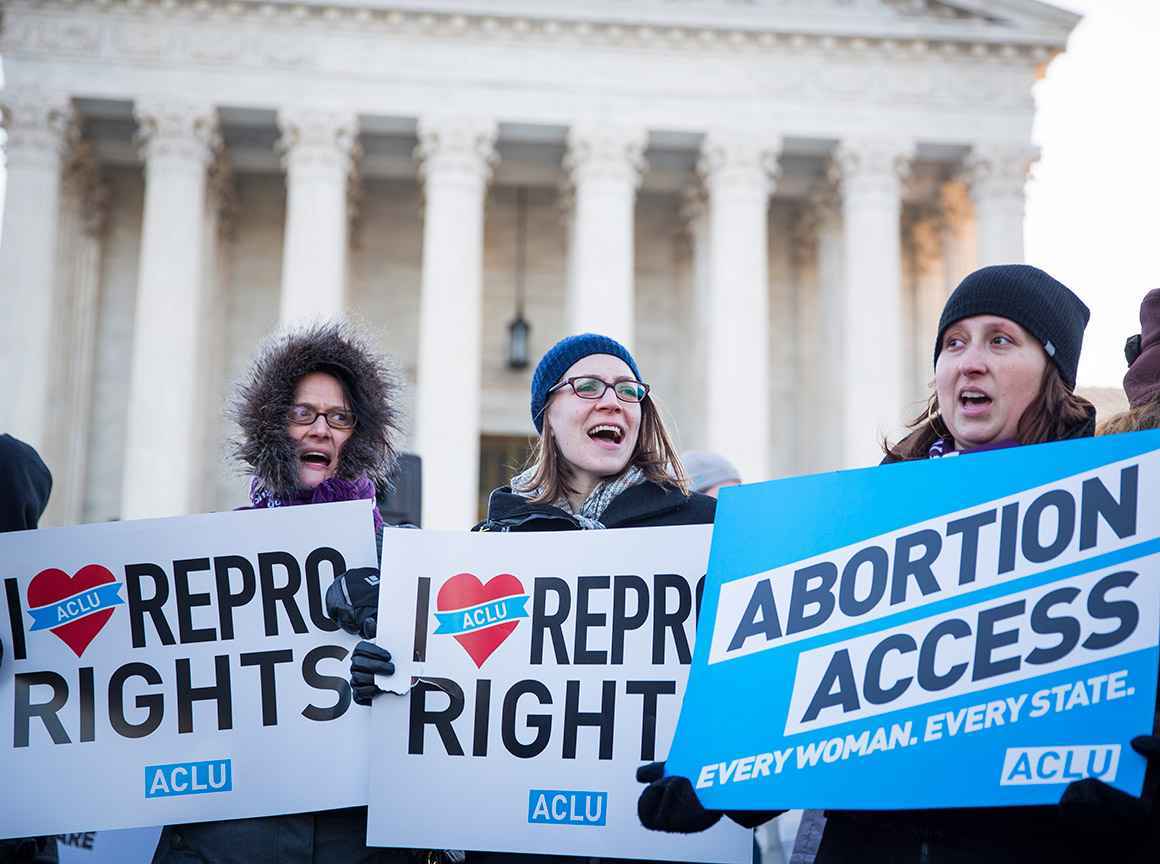
Preterm Cleveland v. Himes
What's at Stake
The American Civil Liberties Union (ACLU) and the ACLU of Ohio filed a lawsuit to challenge an Ohio law criminalizing abortions when one of the woman’s reasons for the abortion is a fetal diagnosis of Down syndrome. Plaintiffs argue the law imposes an unconstitutional burden on patients seeking abortion and intrudes into the personal health decisions of women and families.
Summary
The federal lawsuit, brought by reproductive health care providers in Ohio on behalf of their patients, seeks immediate relief to stop the enforcement of the law, also known as House Bill 214. Plaintiffs argue the law imposes an unconstitutional burden on women seeking abortion and intrudes into patients’ personal decision-making, violating federal constitutional guarantees of privacy and autonomy.
The Ohio law would undermine the relationship between doctors and patients, making it harder for a woman to have an honest and informed conversation with her health care provider. The patient-doctor relationship is critical; a woman should be able to trust her physicians and have confidential conversations without worrying about government interference. The Ohio law would prevent plaintiffs from providing nonjudgmental, medically appropriate care.
In their lawsuit, plaintiffs note that banning a woman from having an abortion because of a fetal diagnosis is not only unconstitutional; the law does nothing to address discrimination against people with disabilities or improve access to health care, education, or other services.
The Ohio abortion ban is part of a national strategy to push abortion out of reach: since January 2011, state politicians have enacted more than 401 new restrictions on abortion that force patients to delay care, shut down clinics, and make abortion care unaffordable and unobtainable.
Plaintiffs are Preterm Cleveland, Planned Parenthood of Southwest Ohio, Planned Parenthood of Greater Ohio, and the Women’s Medical Group Professional Corporation. Plaintiffs seek declaratory and injunctive relief to hold Ohio’s law unconstitutional and unenforceable.
UPDATE (March 2018): In a victory for Ohio women and families, the U.S. District Court for the Southern District of Ohio blocked House Bill 214, was scheduled to take effect on March 23, 2018. The court’s ruling blocks the law’s implementation as litigation proceeds.
UPDATE (October 2019): The Court of Appeals for the Sixth Circuit upheld the District Court’s ruling, and the law remains blocked.
UPDATE (December 2019): The full Court of Appeals for the Sixth Circuit voted to re-hear the state’s appeal of the District Court ruling. The law remains blocked while the appeal continues.
Legal Documents
-
04/13/2021
Sixth Circuit Court of Appeals En Banc Opinion
Date Filed: 04/13/2021
Affiliate: Ohio
Download Document-
08/27/2020
Disability Rights Amicus Brief
Date Filed: 08/27/2020
Affiliate: Ohio
Download Document-
12/18/2019
Preterm Cleveland v. Himes - Order Granting Plantiffs Motion for Preliminary Injunction
Date Filed: 12/18/2019
Affiliate: Ohio
Download Document-
12/18/2019
Preterm Cleveland v. Himes - Plantiffs' Motion for Temporary Restraining Order
Date Filed: 12/18/2019
Affiliate: Ohio
Download Document-
12/18/2019
Preterm Cleveland v. Himes - Declaration of Justin Lappen in Support of Plantiffs Motion
Date Filed: 12/18/2019
Affiliate: Ohio
Download Document-
12/18/2019
Preterm Cleveland v. Himes - Declaration of Iris Harvey in Support of Plantiffs' Motion
Date Filed: 12/18/2019
Affiliate: Ohio
Download Document-
12/18/2019
Preterm Cleveland v. Himes - Declaration of Charisse France in Support of Plantiffs' Motion
Date Filed: 12/18/2019
Affiliate: Ohio
Download Document-
12/18/2019
Preterm Cleveland v. Himes - Declaration of Roslyn Kade in Support of Plantiffs' Motion
Date Filed: 12/18/2019
Affiliate: Ohio
Download Document-
12/18/2019
Preterm Cleveland v. Himes - Response in Opp. to Motion for Temp Restraining Order
Date Filed: 12/18/2019
Affiliate: Ohio
Download Document-
12/18/2019
Preterm Cleveland v. Himes - Plantiffs' Reply to Defendants Memorandum in Opposition to Motion
Date Filed: 12/18/2019
Affiliate: Ohio
Download Document-
12/18/2019
Preterm Cleveland v. Himes - Declaration of Emily Chesnut
Date Filed: 12/18/2019
Affiliate: Ohio
Download Document-
12/18/2019
Preterm Cleveland v. Himes - Declaration of Leesha Thrower
Date Filed: 12/18/2019
Affiliate: Ohio
Download Document-
12/18/2019
Preterm Cleveland v. Himes - Brief in Opposition to Rehearing En Banc for Plaintiffs-Appellees
Date Filed: 12/18/2019
Affiliate: Ohio
Download Document-
12/18/2019
Preterm Cleveland v. Himes - Brief of Defendants-Appellants Lance Himes, Kim Rothermel, Bruce Saferin
Date Filed: 12/18/2019
Affiliate: Ohio
Download Document-
12/18/2019
Preterm Cleveland v. Himes - Brief of Plantiffs-Appellees Preterm-Cleveland, Planned Parenthood
Date Filed: 12/18/2019
Affiliate: Ohio
Download Document-
12/18/2019
Preterm Cleveland v. Himes - Brief of Ohio State Representatives
Date Filed: 12/18/2019
Affiliate: Ohio
Download Document-
12/18/2019
Preterm Cleveland v. Himes - Brief of Amici Curiae, Mothers in Support of Plantiffs-Appellees
Date Filed: 12/18/2019
Affiliate: Ohio
Download Document-
12/18/2019
Preterm Cleveland v. Himes - Amici Curiae Brief in support of Plantiffs-Appellees
Date Filed: 12/18/2019
Affiliate: Ohio
Download Document-
12/18/2019
Preterm Cleveland v. Himes - Brief of the States of California, Connecticut, Delaware, etc.
Date Filed: 12/18/2019
Affiliate: Ohio
Download Document-
12/18/2019
Preterm Cleveland v. Himes - Reply Brief of Defendants-Appellants Lance Himes, Kim Rothermel, Bruce Saferin
Date Filed: 12/18/2019
Affiliate: Ohio
Download Document-
10/11/2019
Opinion and Judgement, United States Court of Appeals for the Sixth Circuit
Date Filed: 10/11/2019
Affiliate: Ohio
Download DocumentPress Releases
Federal Court Overturns Lower Court Ruling, Allowing Ohio Lawmakers to Punish Doctors for Providing Abortion Care Based on Patient's Reason
Full Sixth Circuit to Review Unconstitutional Ohio Abortion Ban
Sixth Circuit Court of Appeals Upholds Block on Law Banning Abortion Based on Patient’s Reason

